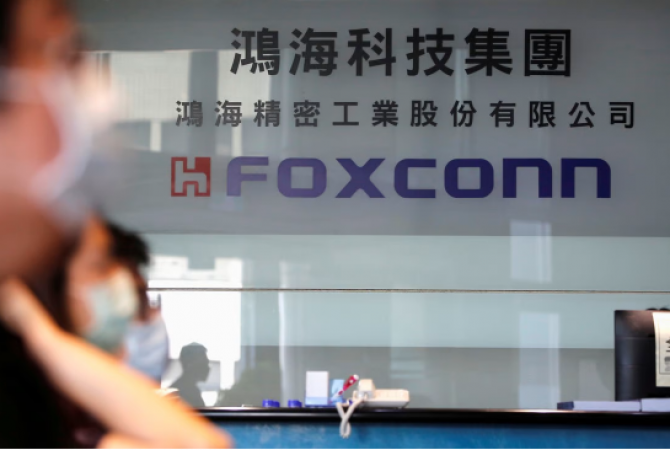
Beijing: Taiwan Semiconductor Manufacturing Company's (TSMC) investment in Arizona has been criticized by Chinese nationalist newspaper Global Times as "a dark turn" in the global semiconductor industry. Washington is accused of tricking the world's most sophisticated chip maker into setting up a wafer fab in the US.
The newspaper, which is affiliated with the official People's Daily, claimed in an editorial on Friday that TSMC's decision to invest in cutting-edge technology in the US showed that Washington had betrayed it and that America was "stealing from the most important technology". Our Taiwan Territory," a reference to Beijing's claim of sovereignty over the self-governing island.
Although Beijing has repeatedly expressed opposition to US sanctions on China's chip industry, Beijing has remained silent about the new TSMC facility in Arizona.
Also Read: What is ChatGPT, the well-known artificial intelligence text bot?
TSMC is prohibited from investing in advanced chip capacity on the Chinese mainland as a result of sanctions from Taipei and Washington. Only mature node chips are produced at the company's factory in Nanjing, the provincial capital of Jiangsu in eastern China.
The investments made by TSMC in Arizona, which include a 3-nanometer wafer foundry and an advanced 4-nm fab, will be used to make advanced chips.
Taiwan Foundry intends to triple its initial US$12 billion ($40 billion) investment in the US state. US President, Joe Biden, declared that "American manufacturing is back" during a ceremony this week to celebrate the first piece of machinery being installed at an Arizona fab.
Four months after Biden signed the US Chips and Science Act, which set aside US$53 billion in subsidies for domestic chip manufacturing projects and local semiconductor research and development, TSMC announced its US$40 billion commitment, This is the largest foreign direct investment in Arizona's history.
The Global Times criticized the US and Taiwan's ruling Democratic Progressive Party for "hollowing out" Taiwan.
Also Read: Elon Musk will delete 150 million Twitter accounts, is your account also in this?
The alarm needs to sound louder. As TSMC did, the US could put pressure on chip makers in other countries, according to the editorial. America is breaking the rules of the market like a bull in a Chinese shop.
Most of the concerns about TSMC's investments outside China were economic in nature, specifically whether or not the company could operate the Arizona fab profitably at higher costs than Taiwan. TSMC's Taipei-listed shares lost 2.03% in value this week; As of Friday's close, they were trading at NT$481.50 (US$15.70).
The US CHIPS Act is a part of a larger US effort to maintain and even enhance American technological dominance in the midst of a tech war with China that focuses on semiconductors and AI.
Many industries have received subsidies from the US government in the past, including oil, agriculture, housing, agricultural exports, automobiles, and healthcare. Chip subsidies are, in the opinion of some analysts and economists, a waste of taxpayer money and may ultimately do more harm than good.
Analysts claimed that geopolitical factors played a role in TSMC's decision to invest in 3-nm production in the US.
According to Arisa Liu, senior semiconductor research fellow at the Taiwan Institute of Economic Research, TSMC's announcement means that "geopolitical factors have entered the semiconductor industry."
Liu continued, "TSMC's decision was driven by political considerations, which when combined with the tense military situation in the Taiwan Strait forced TSMC to consider diversification to reduce the risk of having its production base [in Taiwan]." did.
The Arizona plant will produce "the most advanced semiconductor process technology in the country, enabling the next generation of high-performance and low-power computing products for years to come," according to TSMC President Mark Liu at an official ceremony this week.
TSMC founder Morris Chang, who previously claimed that chip manufacturing costs 50% more in the US than in Taiwan, was present at the ceremony and was reportedly heard telling attendees that free trade and globalization were "almost dead". " Were.
In order to create the Chip4 Alliance, the US has been courting its allies, including Taiwan, Japan, and South Korea. Beijing interprets this as an effort to undercut China's influence in global supply chains.
Washington has increased its pressure on the Dutch government to impose restrictions on lithography systems from ASML shipments to China.
The TSMC Arizona fab, according to Shanghai-based IC consulting firm ICWise, would strengthen America's already robust semiconductor value chain and serve as a model for others to follow.
According to a TSMC statement, the 3-nm and 4-nm Arizona foundries will open in 2024 and 2026, respectively. Together, they will have a capacity for 600,000 wafers per year and produce US$40 billion in revenue annually.
Apple, AMD, and Nvidia, three US technologycompanies, are anticipated to be the TSMC Arizona fabs' first clients. Although the 3-nm production process has received much attention, legacy nodes like the 28-nm process, which China is able to produce, are still seen as growth markets in the larger global chip industry, which is predicted to experience a 3.6% revenue decline next year due to inflation and a slump in consumer electronics.
According to Abhinav Davuluri, technology equity strategist at financial services company Morningstar, "the only chips made on [the 3-nm] process next year will be iPhone processors, and possibly some other smartphone chips."
Also Read: CEO of crypto news site The Block resigns for failing to disclose USD 27M loans
"Typically, the industrial and automotive chips that have been in short supply over the past couple of years are made in much more mature and legacy processes.”